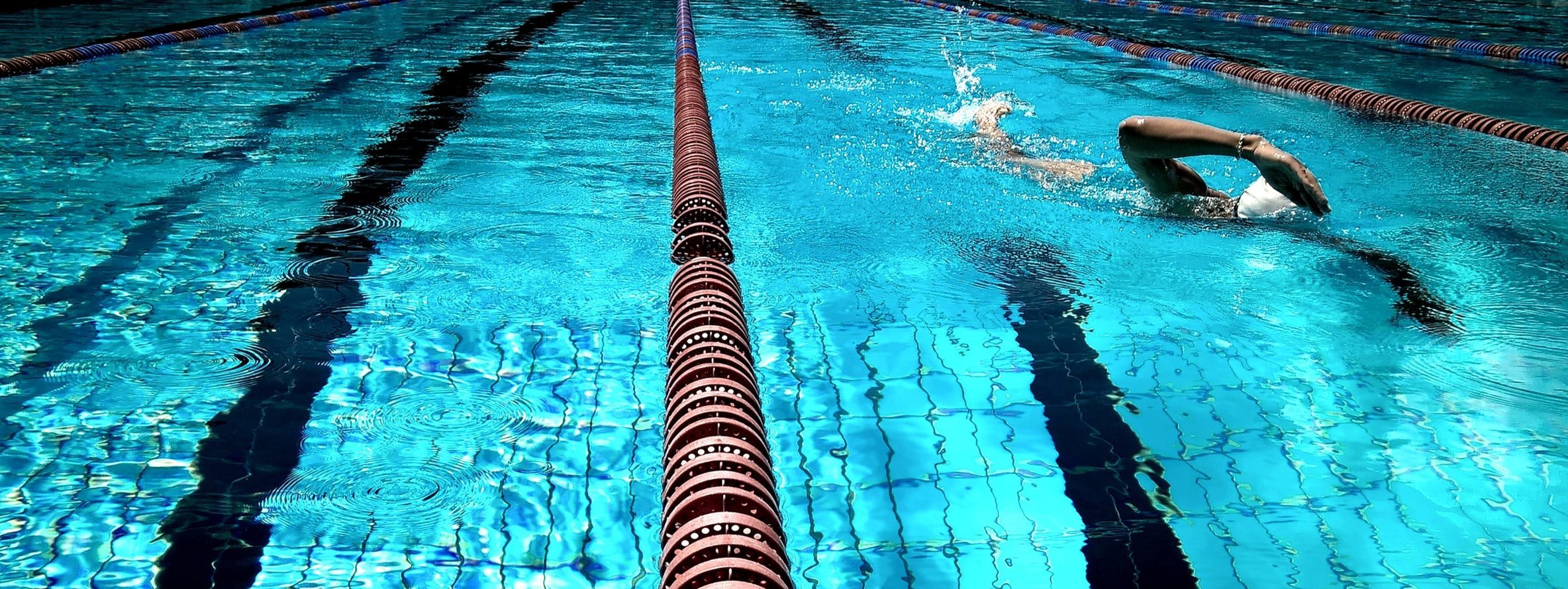I looked out my window almost every morning as a child to watch my friends walk to the neighborhood pool for swim practice. It looked fun — a team, matching swimsuits, a chance to be outside and make new friends — and I wanted it. I talked to my parents, who felt that I needed more time in swim lessons. Highly motivated, I did as my parents asked, and then at 10 years old, I joined the neighborhood swim team.
Immediately, I was hooked. I loved everything — the chance to push myself, make new friends, and develop my leadership skills as a high school swim team captain. It became so much more than sport; I realized as an adult that I was practicing the psychosocial skills needed to develop resilience and persistence. “No one can tell if you’re crying behind your goggles,” I wrote in my journal one evening after swim practice. I grew up in a home in which there was addiction. Swimming felt like my safe space to work through difficult emotions while having role models like coaches and older teammates.
I continued swimming in college as a Division 1 swimmer at Towson University. It’s an experience I continue to draw from. What a gift it was to be dedicated to the push, the call, the challenge, unsure if you were about to cry in your goggles or crank out the next set with gritted teeth and a beastly, animalistic confidence you never knew was within you.
The early mornings. The weight room. The obnoxiously-too-bright-for-six-AM pool lights hitting the still water on some early December morning. The rhythm. The soul. The ability to look straight into the clear chlorine-filled waters knowing it didn’t matter what life threw at you that day. You were going to come out on top. And when a setback came, you learned to let it shape you for good and to believe in your potential, to reset and come back again and again.
Swimming offered so many transferable lessons from pool to “real world.” It taught me to have authentic engagement in each moment, in each choice, in each setting you find yourself and commit with vitality, not losing sight of the dreams that tug at your heart. The fortitude to accept that things won’t always be this way, but the complete understanding that we have the power to actively engage in such a way that grows us deeper into who we want to become. You never have to give up the gusto you got from this sport; you just need flexibility enough to adapt to changing life environments.
I am privileged that I am able to engage in the sport I love through triathlon. It has been my form of summer cross training in between collegiate seasons since my first sprint triathlon at 18 years old with my high school swim teammate. I continued racing at the Olympic and 70.3 mile distances, eventually qualifying for the 70.3 World Championships while advocating for women’s inclusion in the Tour de France. I now engage in the sport not only as an athlete but as the Education Manager for USA Triathlon. I also stayed engaged in swimming as a local club coach, former USA Swimming coach, US Masters Swimming coach, collegiate club triathlon coach, and Certified USA Triathlon Level II coach.
I can’t express the joy I feel when I see youth step up to a starting block to push themselves into new experiences. I lose track of time on the pool deck and want to be nowhere else. Pools are havens of growth, possibility, and connection. As coaches, athletes, parents, and fans, I believe this sport pushes us out of our comfort zones — a quintessential skill that allows us to experience the fullness of our humanity.
I’ll see you in the pool.

My “Why”
Twitter
Facebook
LinkedIn
About the Author

Melissa Otterbein
Melissa spent four years as a Division 1 swimmer at Towson University before going on to become a Certified USA Triathlon Coach and US Masters Swimming Coach, Certified Health Educator Specialist, and Master of Public Health in Physical Activity. She is passionate about sports’ contribution to character development and currently works as USA Triathlon’s Education Manager.
